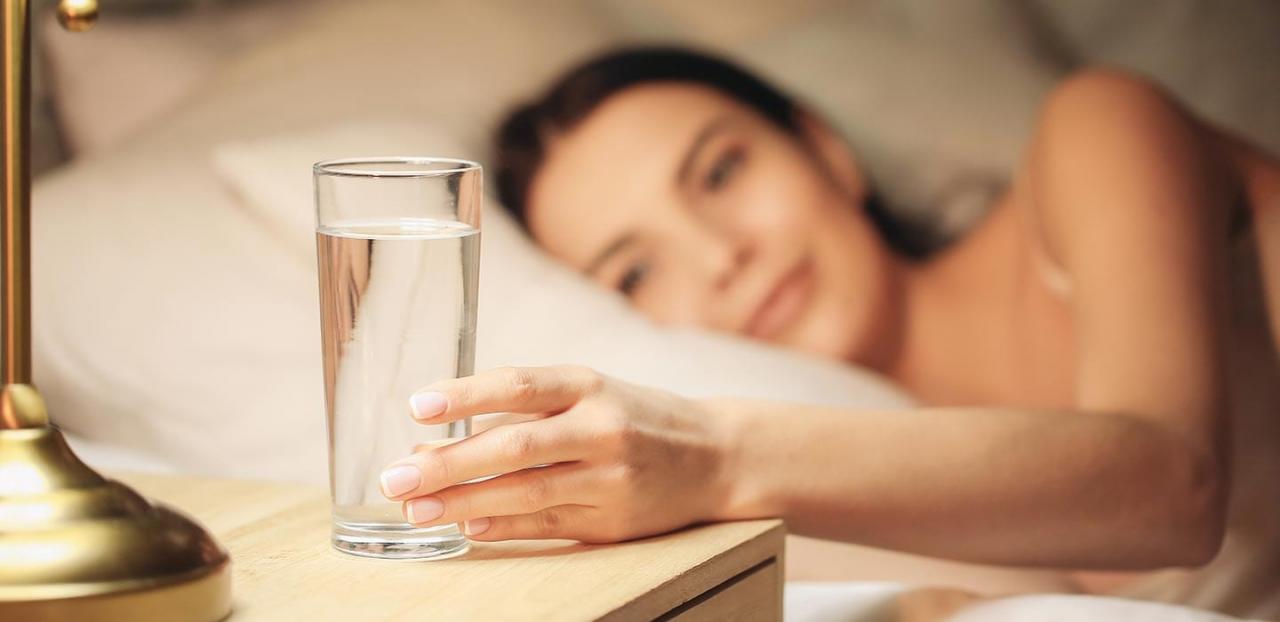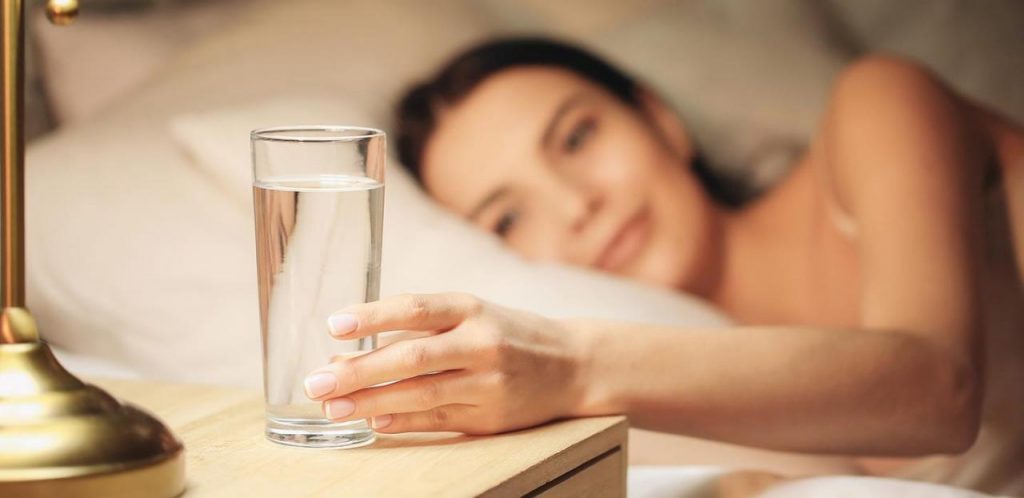We often hear about the importance of staying hydrated throughout the day to maintain our overall health and well-being. But did you know that proper hydration also plays a crucial role in our quality of sleep? In this article, we will explore the connection between hydration and sleep, and uncover how staying adequately hydrated can lead to better rest and improved overall sleep patterns. So grab a glass of water and get ready to dive into the fascinating world of the relationship between hydration and sleep.

The Importance of Hydration for Quality Sleep
Ensuring you are properly hydrated is crucial for a good night’s sleep. Dehydration can lead to restless nights, waking up frequently, and even sleep disruptions such as snoring or leg cramps. By maintaining a good level of hydration throughout the day, you can improve the quality of your sleep and wake up feeling more refreshed.
When you are dehydrated, your body releases a hormone called vasopressin, which can lead to increased blood pressure and disrupted sleep patterns. By drinking enough water during the day, you can help regulate vasopressin levels and promote a more restful night’s sleep. Additionally, staying hydrated can also help reduce the risk of sleep disorders such as insomnia and sleep apnea.
Not only does hydration impact the quality of your sleep, but it also plays a role in your overall health and well-being. Adequate hydration can help improve cognitive function, mood, and energy levels throughout the day. By making a conscious effort to drink enough water and stay hydrated, you can set yourself up for a better night’s sleep and a healthier lifestyle.
Effects of Dehydration on Sleep Patterns
When it comes to getting a good night’s sleep, many factors come into play. One crucial aspect that often gets overlooked is hydration. Dehydration can have a significant impact on your sleep patterns, leading to disrupted rest and overall fatigue.
Here are some :
- Increased Restlessness: Dehydration can cause you to feel restless during the night, making it difficult to fall asleep or stay asleep.
- Decreased REM Sleep: Proper hydration is essential for entering the deep, restorative stage of REM sleep. Dehydration can disrupt this process, leading to poor sleep quality.
- More Frequent Waking: When your body is dehydrated, you may find yourself waking up more frequently throughout the night to drink water or use the bathroom.
It is essential to prioritize hydration throughout the day to ensure that your body is adequately prepared for restful sleep. Make sure to drink plenty of water and avoid dehydrating substances like caffeine and alcohol close to bedtime. Your sleep patterns will thank you!
Optimal Hydration Practices for Better Sleep
Ensuring you are adequately hydrated is crucial for achieving quality sleep. Dehydration can lead to various disruptions in your sleep cycle, making it harder to fall asleep and stay asleep throughout the night. By following optimal hydration practices, you can improve your overall sleep quality and wake up feeling refreshed and rejuvenated.
Here are some key hydration practices to incorporate into your daily routine:
- Drink water throughout the day: Aim to drink at least 8-10 glasses of water daily to maintain proper hydration levels.
- Avoid excessive caffeine and alcohol consumption: These substances can dehydrate your body, leading to poor sleep quality.
- Monitor your urine color: Clear or light yellow urine indicates proper hydration, while dark yellow urine may signal dehydration.
By following these hydration practices, you can support your body’s natural sleep-wake cycle and improve your overall sleep health. Remember, staying hydrated is not only essential for your physical well-being but also plays a crucial role in optimizing your sleep.
Hydration Tips for Improving Sleep Quality
It is no secret that hydration plays a vital role in our overall health and well-being. However, many people overlook the impact that proper hydration can have on our sleep quality. Staying properly hydrated throughout the day can help improve your sleep patterns and ensure you get a good night’s rest.
Here are some hydration tips to help you improve your sleep quality:
- Drink plenty of water: Aim to drink at least 8-10 glasses of water throughout the day to stay hydrated. Dehydration can lead to disrupted sleep patterns, so staying hydrated is key.
- Avoid caffeine and alcohol: Caffeine and alcohol can dehydrate the body and disrupt your sleep. Try to limit your intake of these drinks, especially in the hours leading up to bedtime.
By incorporating these hydration tips into your daily routine, you can help improve your sleep quality and overall well-being. Remember, staying hydrated is not only important for your physical health but also for a good night’s sleep.
In conclusion, maintaining proper hydration levels is essential for supporting optimal sleep quality. By understanding the significant role that hydration plays in our sleep patterns, we can take proactive steps to ensure we are adequately hydrated throughout the day. Remember, a well-hydrated body leads to a well-rested mind. So next time you reach for that glass of water, think about the positive impact it could have on your sleep. Sweet dreams and stay hydrated!

